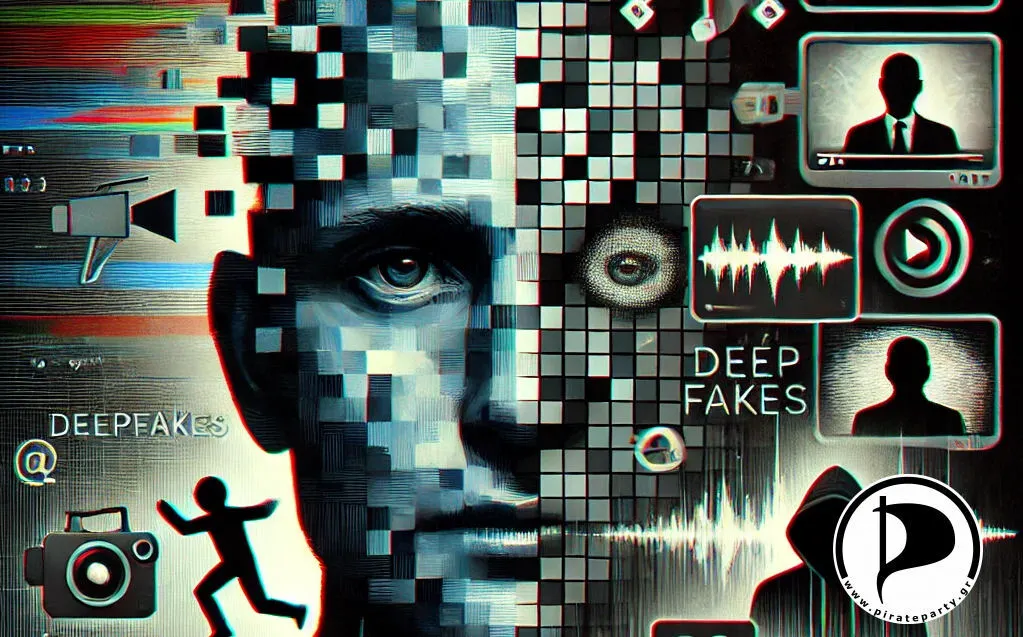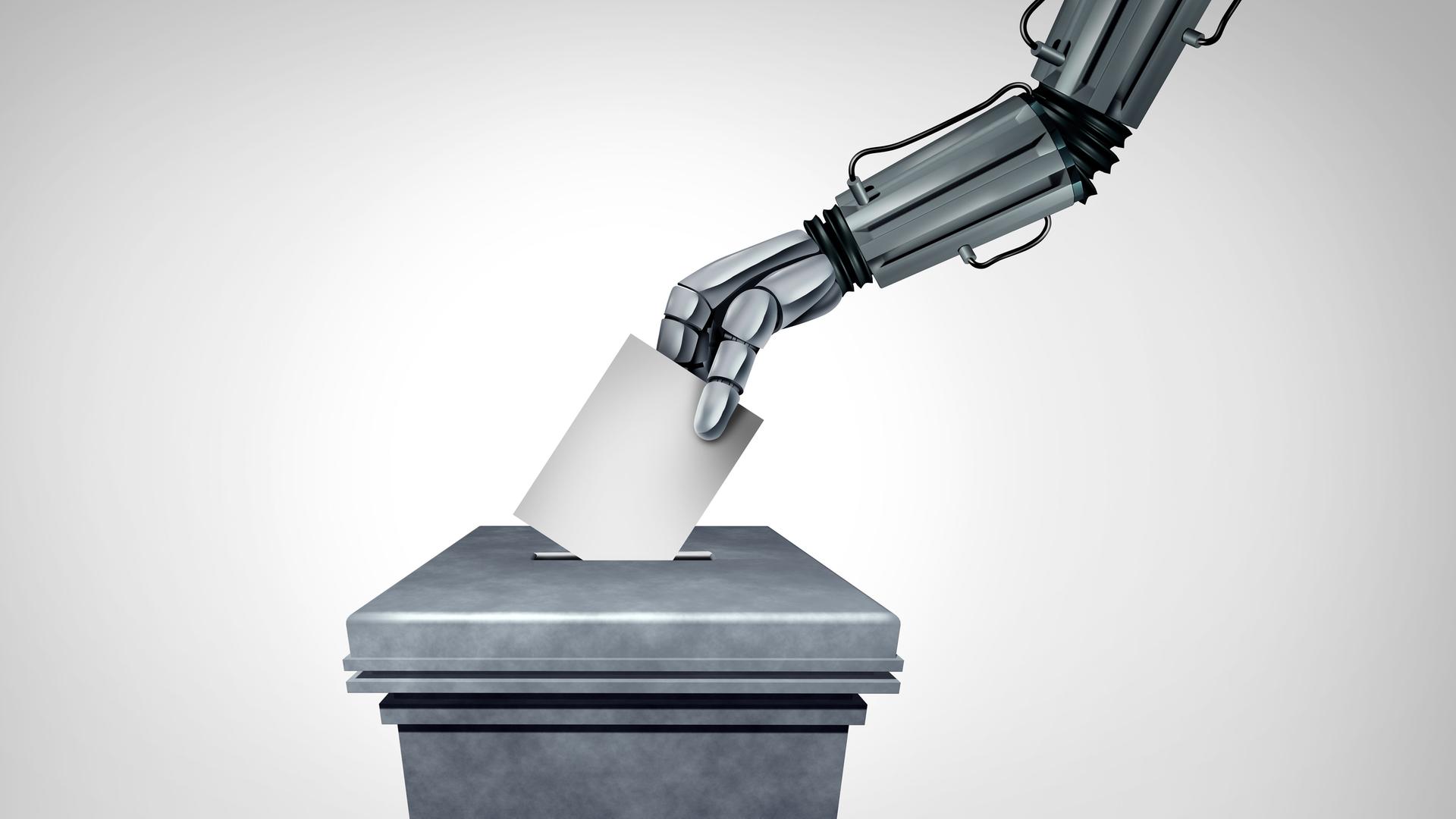"Tech Accord to Combat Deceptive Use of AI in 2024 Elections".
"As leaders and representatives of organizations that value and uphold democracy, we recognize the need for a whole-of-society response to these developments throughout the year. We are committed to doing our part as technology companies, while acknowledging that the deceptive use of AI is not only a technical challenge, but a political, social, and ethical issue and hope others will similarly commit to action across society."
"We affirm that the protection of electoral integrity and public trust is a shared responsibility and a common good that transcends partisan interests and national borders."
"We appreciate that the effective protection of our elections and electoral processes will require government leadership, trustworthy technology practices, responsible campaign practices and reporting, and active educational efforts to support an informed citizenry."
"We will continue to build upon efforts we have collectively and individually deployed over the years to counter risks from the creation and dissemination of Deceptive AI Election Content and its dissemination, including developing technologies, standards, open- source tools, user information features, and more."
"We acknowledge the importance of pursuing this work in a manner that respects and upholds human rights, including freedom of expression and privacy, and that fosters innovation and promotes accountability. We acknowledge the importance of pursuing these issues with transparency about our work, without partisan interests or favoritism towards individual candidates, parties, or ideologies, and through inclusive opportunities to listen to views across civil society, academia, the private sector, and all political parties."
"We recognize that no individual solution or combination of solutions, including those described below such as metadata, watermarking, classifiers, or other forms of provenance or detection techniques, can fully mitigate risks related to Deceptive AI Election Content, and that accordingly it behooves all parts of society to help educate the public on these challenges."
"We sign this accord as a voluntary framework of principles and actions to advance seven principal goals:"
"1. Prevention: Researching, investing in, and/or deploying reasonable precautions to limit risks of deliberately Deceptive AI Election Content being generated."
"2. Provenance: Attaching provenance signals to identify the origin of content where appropriate and technically feasible."
"3. Detection: Attempting to detect Deceptive AI Election Content or authenticated content, including with methods such as reading provenance signals across platforms."
"4. Responsive Protection: Providing swift and proportionate responses to incidents involving the creation and dissemination of Deceptive AI Election Content."
"5. Evaluation: Undertaking collective efforts to evaluate and learn from the experiences and outcomes of dealing with Deceptive AI Election Content."
"6. Public Awareness: Engaging in shared efforts to educate the public about media literacy best practices, in particular regarding Deceptive AI Election Content, and ways citizens can protect themselves from being manipulated or deceived by this content."
"7. Resilience: Supporting efforts to develop and make available defensive tools and resources, such as AI literacy and other public programs, AI-based solutions (including open-source tools where appropriate), or contextual features, to help protect public debate, defend the integrity of the democratic process, and build whole-of-society resilience against the use of Deceptive AI Election Content."
"In pursuit of these goals, we commit to the following steps through 2024:"
"1. Developing and implementing technology to mitigate risks related to Deceptive AI Election content by:"
"a. Supporting the development of technological innovations to mitigate risks arising from Deceptive AI Election Content by identifying realistic AI-generated images and/or certifying the authenticity of content and its origin, with the understanding that all such solutions have limitations. This work could include but is not limited to developing classifiers or robust provenance methods like watermarking or signed metadata (e.g. the standard developed by C2PA or SynthID watermarking)."
"b. Continuing to invest in advancing new provenance technology innovations for audio video, and images."
"c. Working toward attaching machine-readable information, as appropriate, to realistic AI-generated audio, video, and image content that is generated by users with models in scope of this accord."
"2. Assessing models in scope of this accord to understand the risks they may present regarding Deceptive AI Election Content so we may better understand vectors for abuse in furtherance of improving our controls against this abuse."
"3. Seeking to detect the distribution of Deceptive AI election content hosted on our online distribution platforms where such content is intended for public distribution and could be mistaken as real. ..."
"4. Seeking to appropriately address Deceptive AI Election Content we detect that is hosted on our online distribution platforms and intended for public distribution, in a manner consistent with principles of free expression and safety. ..."
"5. Fostering cross-industry resilience to Deceptive AI Election Content by sharing best practices and exploring pathways to share best-in-class tools and/or technical signals ..."
"6. Providing transparency to the public regarding how we address Deceptive AI Election Content ..."
"7. Continuing to engage with a diverse set of global civil society organizations, academics, and other relevant subject matter experts ..."
"8. Supporting efforts to foster public awareness and all-of-society resilience regarding Deceptive AI Election Content -- for instance by means of education campaigns ..."
Signatories include Adobe, Amazon, Anthropic, ARM, IIElevenLabs, Google, IBM, Inflection, LG AI Research, LinkedIn, McAfee, Microsoft, Meta (the company formerly known as Facebook), NetApp, Nota, OpenAI, Snapchat, Stability AI, TikTok, Trend Micro, Truepic, and X (the company formerly known as Twitter).
A Tech Accord to Combat Deceptive Use of AI in 2024 Elections
#ai #genai #deepfakes #aiethics













